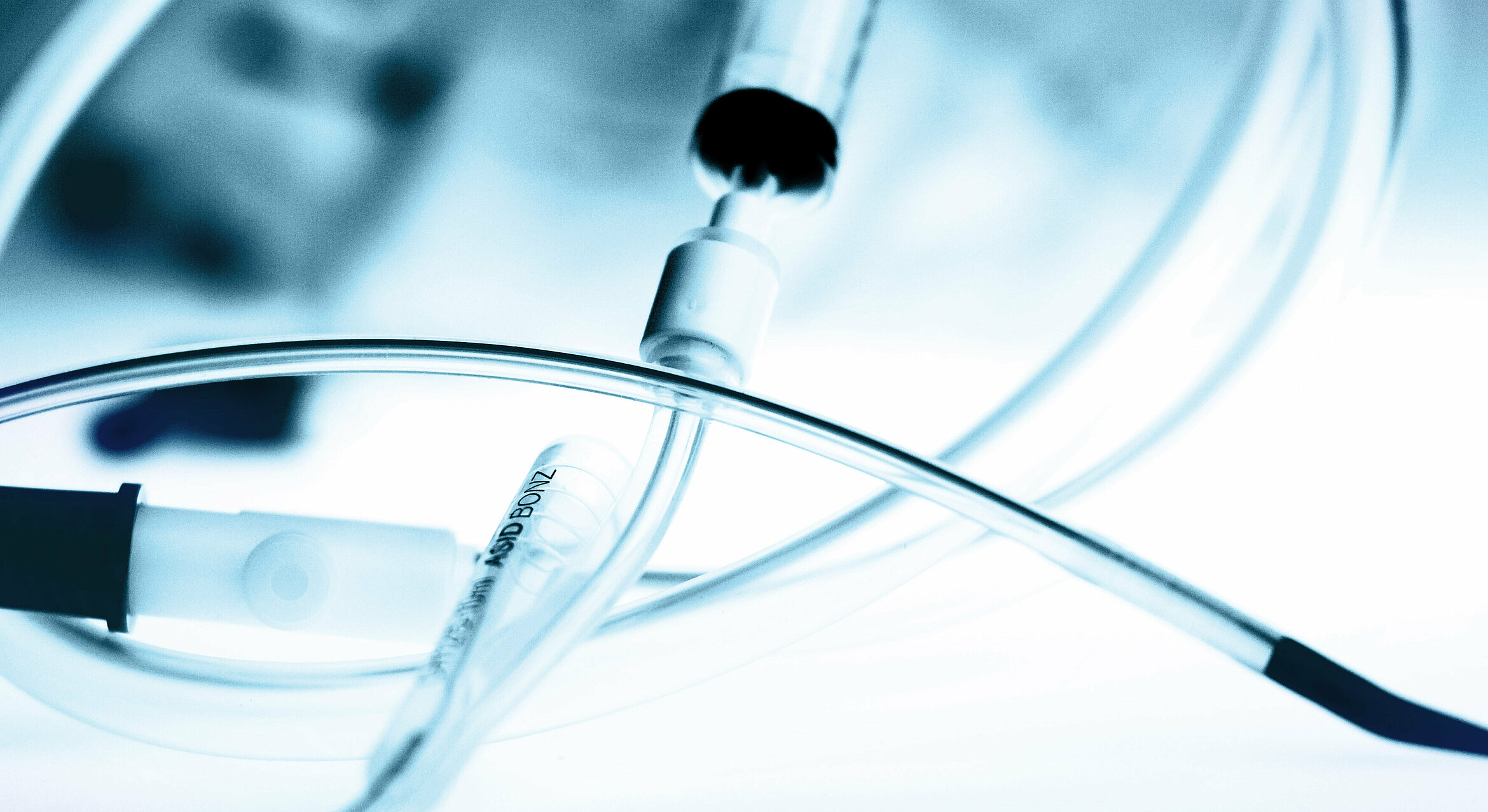
Outpatient catheter removal
If the connection between your urinary bladder and urethra (anamastosis) has not yet fully healed by the time you are discharged, the indwelling catheter will have to remain in place for a few more days. During this period, just like during your inpatient stay with us, your urine will collect in a small bag that you can attach discreetly to your leg. Before you are discharged, we will make an appointment for a date when, in our experience, your urinary catheter will be ready to be removed. You should consider this appointment more of a guide, as the healing process can sometimes take a little longer. This is not uncommon and in no way compromises the success of the surgery.
In most cases, your urinary catheter will be removed at an appointment arranged with your usual urologist. However, you are also welcome to make an appointment in our Outpatient department.
Outpatient catheter removal at the Martini-Klinik
We would like to give you an idea of the process of removing an indwelling catheter in our Outpatient department. Of course, your urologist may follow a different procedure.
In some cases, we may need to perform special ultrasound scans or X-ray imaging (cystograms) to see whether the anastomosis has fully healed. After that, the indwelling catheter is removed. Catheter removal is a painless procedure and is performed by a member of our Outpatient team. They will speak with you in detail about what you need to bear in mind over the coming days and weeks. We will ask you to pass water after removal of the catheter, after which we will perform an ultrasound scan of the urinary bladder to check you have fully emptied it. During this appointment, we will also check whether any lymphatic fluid has accumulated in your pelvic region. Please allow two to three hours for this outpatient appointment. As a precaution, we recommend visiting your urologist seven days after the catheter is removed so that they can test your urine for bacteria.
Recommendations following catheter removal
These are recommendations for patients who have not signed up for a follow-up treatment regimen or whose follow-up treatment has not yet started.
Drinking and going to the toilet
- Drink plenty of fluids: you should be drinking 1.5 to 2 litres per day.
- Do not go to the toilet unless you need to go. But if your bladder tells you to go, don’t delay!
- Pay attention to your stool. Make sure to keep your stool soft. Plum juice, detox teas and Psyllium from a chemist or pharmacy can help with this.
Sport and activities
For the next four to six weeks you should avoid...
- lifting and carrying heavy items
- strenuous housework and gardening
- sporting activities
- ... and avoid cycling for 100 days to protect your sphincter
Incontinence pads
You can buy incontinence pads in pharmacies and health stores, and often in supermarkets, in a range of sizes and absorption capacities (from brands including TENA for men, Moli-Med for men protect, Seni man and Molinea).
You can and should avoid wearing incontinence pants.
Testing urine for bacteria
As a precaution, please visit your doctor or urologist for a urine test one week after your catheter is removed to check your urine for bacteria. We would be happy to provide this service at the Martini-Klinik.
What should I do if I don’t regain my continence?
If you don’t experience any form of improvement in your continence within four weeks of your catheter being removed, we recommend special training for your urethral sphincter through physiotherapy.
Following surgery to remove your prostate, the catheter placed during the procedure will usually be removed around a week later by your usual urologist. It may remain in place for a shorter or longer period, which does not compromise the success of the surgery. In short, our recommendations are: Drink 1.5 to 2 litres of fluid per day; don’t go to the toilet unless you need to – but if your bladder tells you to go, don’t delay. Keeping mobile is good, but avoid sports for around five weeks and avoid cycling for 100 days.